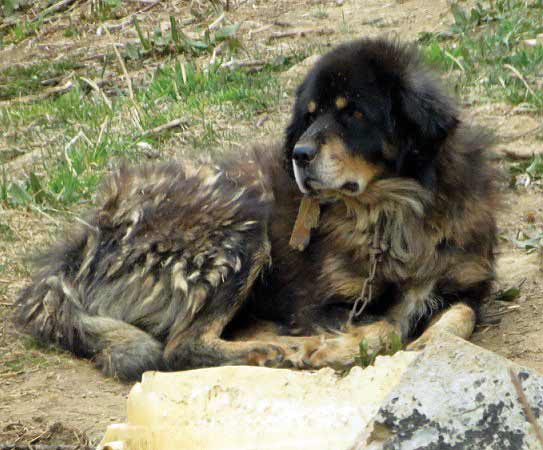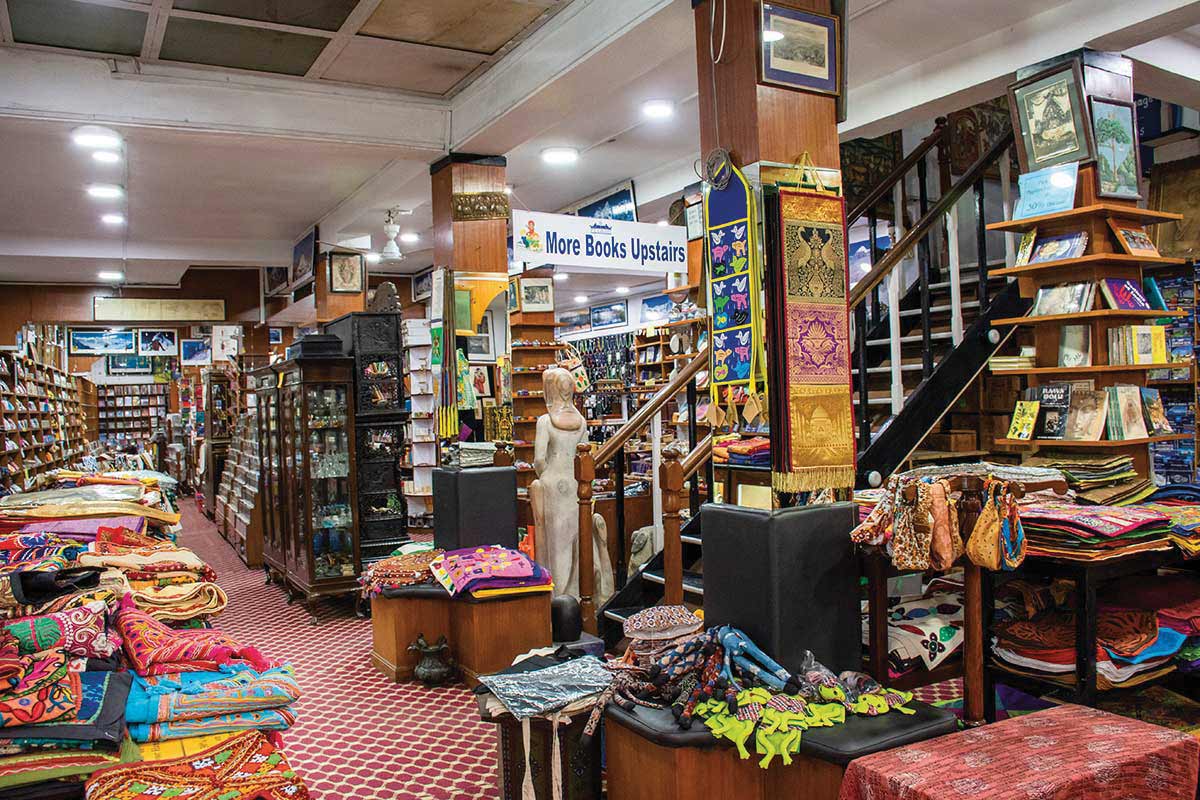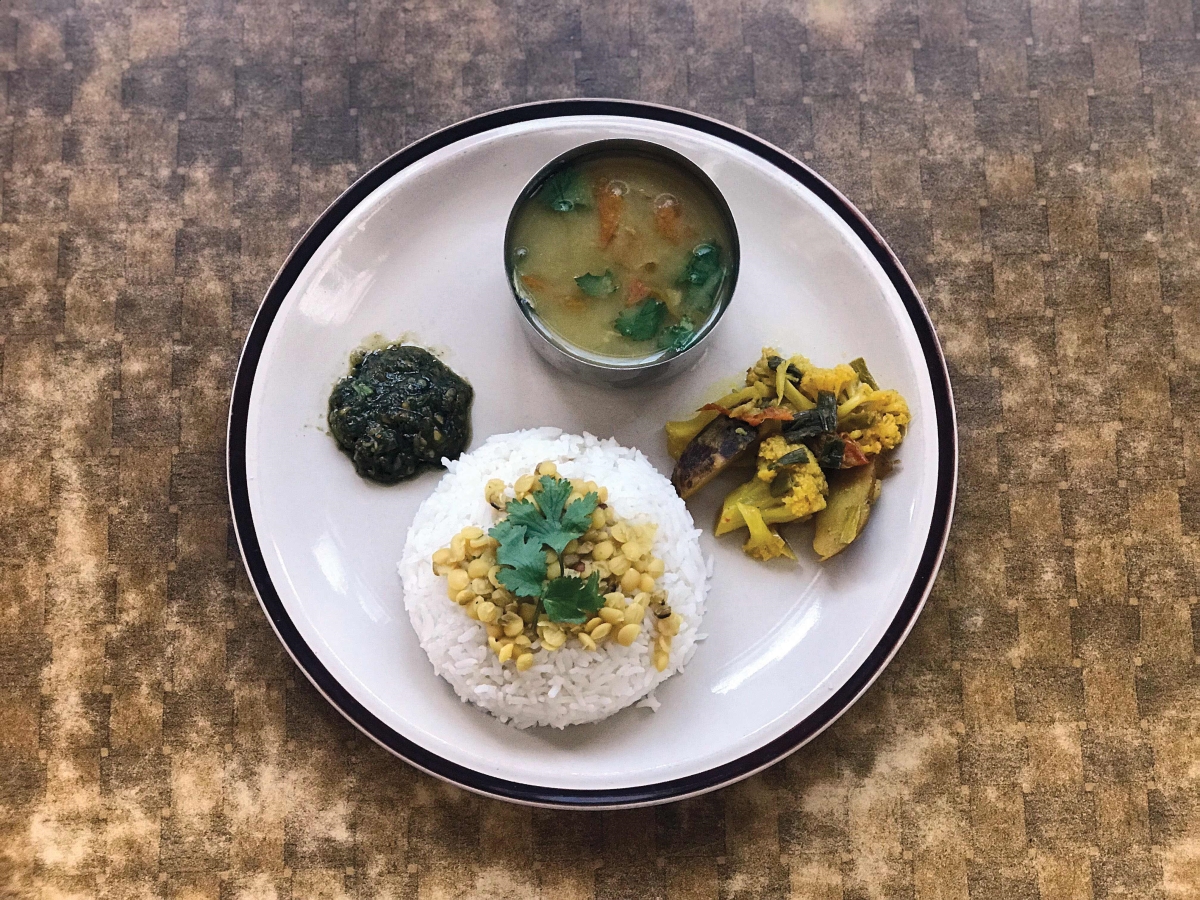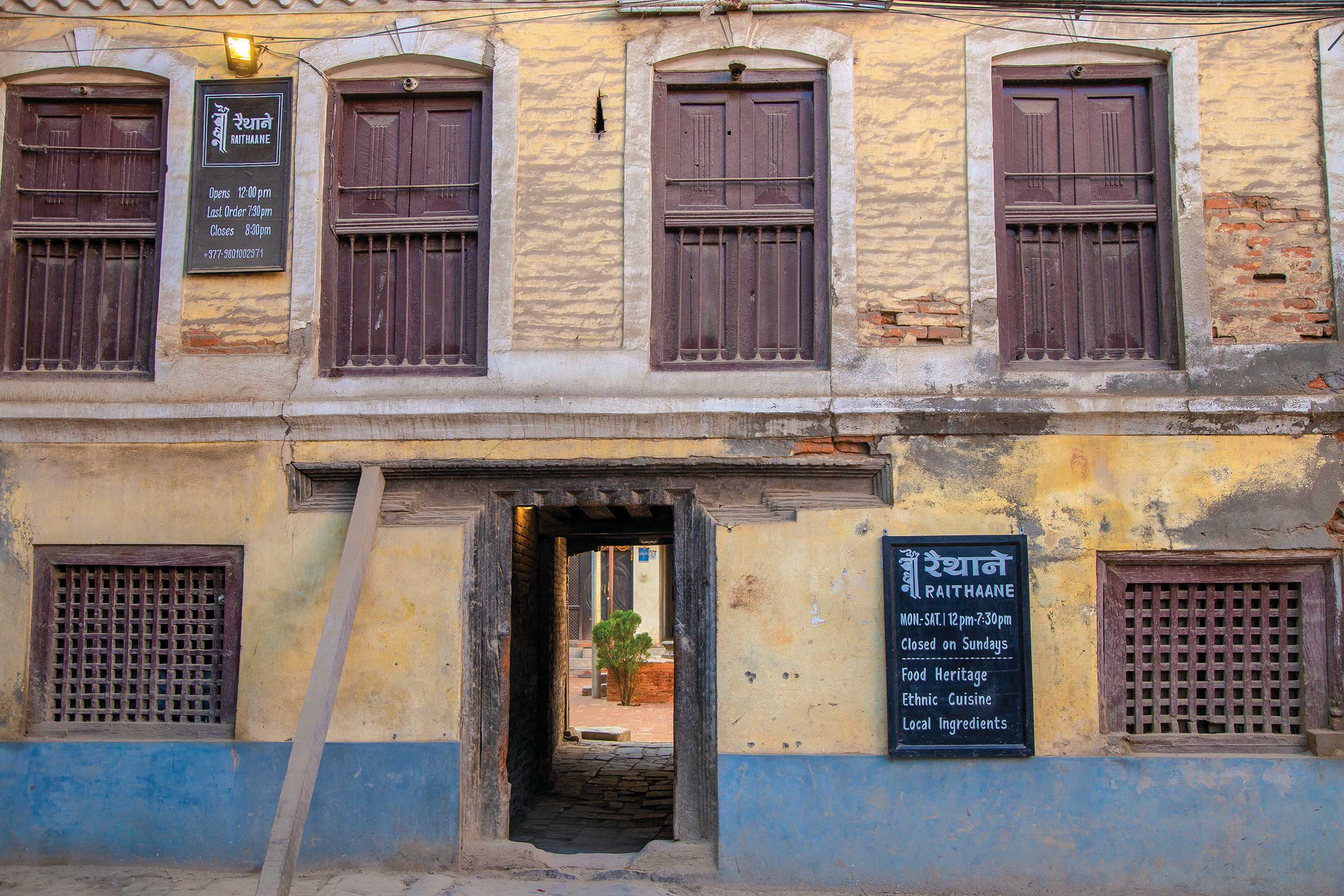No Better Way to Understand a Place but to Live with Them
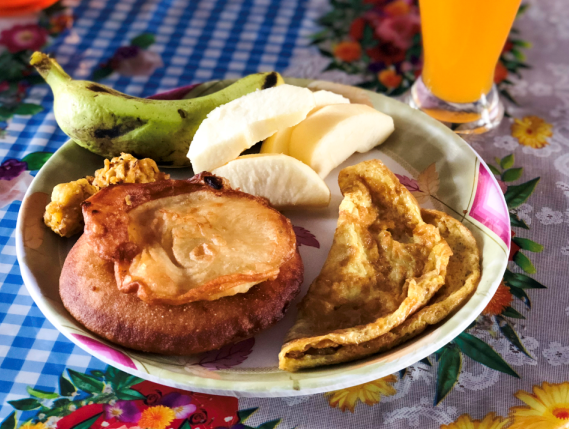 It is the green season in the Nepali calendar. I learned this after I arrived at Panauti, and through my eyes, after two days’ homestay, Panauti totally defined the beauty of green in Nepal, not only because of the pleasant scenery, but also the unsophisticated folk humaneness of the locals. Though the monsoon season was not perfect for tourists, the misty rainy day highlighted the obscure beauty of this mysterious city.
It is the green season in the Nepali calendar. I learned this after I arrived at Panauti, and through my eyes, after two days’ homestay, Panauti totally defined the beauty of green in Nepal, not only because of the pleasant scenery, but also the unsophisticated folk humaneness of the locals. Though the monsoon season was not perfect for tourists, the misty rainy day highlighted the obscure beauty of this mysterious city.
After around a one-and-a-half-hour drive, we received a warm reception by the local hostess in the community hall. Garlanded with morning glories just picked up from the trees and being given a tika on our foreheads, they greeted us passionately and briefed us about our two-day itinerary.
It should be a sunny noon, but with the dense cloud, only several rays of sunshine peek through. The whole of Panauti is located in a valley that is 36 km away from Kathmandu. In this supramundane village, within the zone of 120-yard radius, only a rooftop can help you take in everything at a glance. At an elevation of around 1500 meters, I felt like I was on a boundless plateau.
Along the way to my one-night accommodation, green fields of rice and corn pictured this cozy village with overflowing vigor. Girls and women were also seen wearing green and yellow bangles on their hands and their palms were decorated with mehendi. The month of Shrawan is one of the most important months in Nepal, and integrating with the greens of the natural environment, the local females also dressed themselves up to be a part of this picturesque landscape.
Anjana Shrestha was my hostess. Big smile and bright eyes were her signature traits. Guided by her, we strolled on the streets, sometimes greeted and smiled at by locals. The cottages alongside were painted with pink, blue, yellow, and other colors, looking like the houses in fairy tales. As I was wondering about the color of my accommodation, I saw a comparatively big white building behind a blooming violet tree. A conspicuous yellow signboard hanging on the wall read, “Panauti Community Homestay, Anjana Shrestha”; then, I knew this was the place.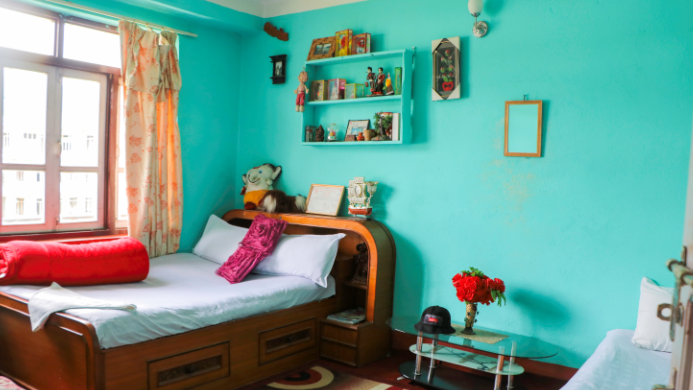
Seven years ago, Anjana’s father and his four brothers built their big house, which has five independent but connected buildings. The Shrestha family has been rooted in Panauti for generations. Now, all of their five families still live together, so whenever they need each other, they just need to speak a little bit louder on their interconnected balconies; then they can communicate without any electronic device! “Sometimes, we have a big dinner together. If my aunts don’t want to cook by themselves, they will join us whenever they want.” As young people born and bred in the digital age, this kind of original lifestyle was unfamiliar and interesting for me, from which I learnt how close a big family can be, something that I could never learn from a big modern city.
After I settled down, it was already 12 o’clock. Anjana cooked a simple but delicious lunch for me, and accompanied me while I was eating. She sat in front of me quietly and paid close attention to my facial expression, worried about whether I liked the food, and actually, I loved the local food. The conversation ranged around several topics, and it was clear that she was well educated. Before being a homestay hostess, she was a pre-primary school teacher, but she had been suffering from backache when she heard about the homestay program from her friends. It has been five years since the first day she decided to join in. “This program for women really helped me a lot, even if I had a job before. I can earn money by myself and at the same time look after my aging parents and young sister.” In her spare time, her families also sew cloth bags, and even garments, for the guests.
Anjana’s mother is now taking care of the small grocery on the ground floor of their house. “I think the whole village benefits a lot from the development of tourism. Small shop owners like my mother sell more products than before, and also, the local markets that we usually go to buy the food for our guests. So, you are always welcomed by the people here as guests.”
I lived on the first floor. There are two rooms served for the guests, both of which were decorated with colorful pieces. Sunflower-shaped cushions were neatly laid on the sofa with the background of a pink wall, and through the gauze curtain, I could have a panoramic view of the vast green fields, feeling peaceful and pleasant. Everything was prepared for the comfort of visiting guests. Fresh coats of paint, comfortable mattresses, Western-style toilets, and hot water were installed, which were also the standard for other hosting families, and it was as comfortable as staying in a hotel.
While hanging out in the busy downtown, travelers from all over the world can be seen on the antique streets. Anjana told me that most of them came from Italy, Netherlands, and other European countries. “Though it is the off season for tourism, Italians now have their vacation in August, so these days the homestay families are full of guests.” Obviously, homestay helped her learn a lot from oversea guests, opening her eyes and mind, and she knew much more than the villagers. “Maybe we don’t have chance to travel to your countries, but we can learn from you, to know what the outside world looks like and gain more knowledge,” she said.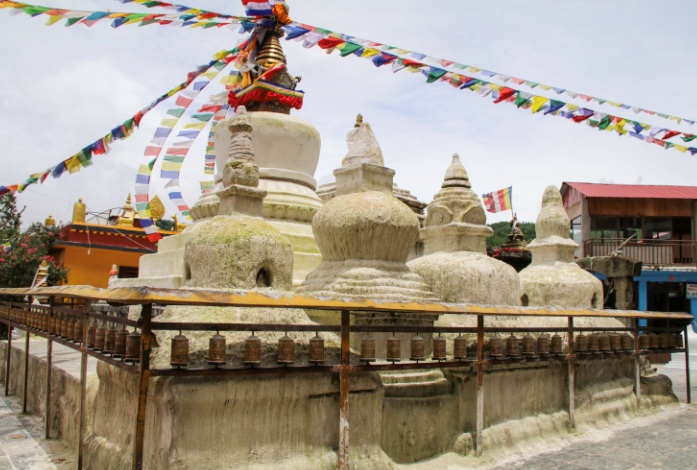
After a half-day tour of the center of Panauti, exploring the ancient Newari culture and impressive temples, and browsing the local museum, the charm and magic of this old city impressed me a lot. Anjana’s mother was waiting for us in the kitchen for the cooking-teaching session. Every step of cooking the local dhal bhaat was covered, from preparing the raw material to adding various types of flavors, and also rolling chapati breads. To experience an exotic lifestyle, food has to be an integral part of the adventure. It can’t be better than if you get the chance to be instructed by a local housewife. Finally, I had a gorgeous meal with the whole family, and seeing that Anjana’s father’s plate was filled with meat, exactly same as with my father’s bowl, I felt like I was having dinner at home with my own family. They never kept a distance with me as a guest, but treated me as their family member. I believed that’s the mearing of homestay, to live like one of them and understand the new place.



